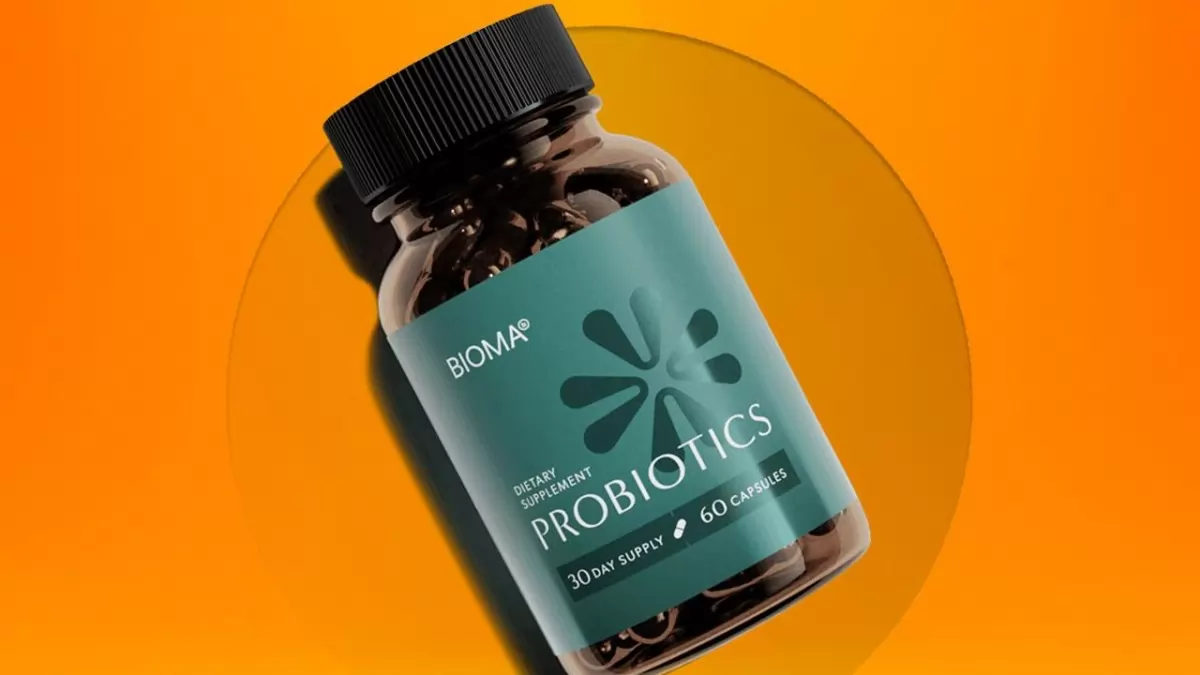
This post may contain affiliate content from which we earn a small commission at no additional cost to you. Read our full disclosure.
Ever felt butterflies in your stomach when stressed? Turns out, there’s a real connection between how we feel and how our gut reacts. “How Stress Affects Your Gut” is a fascinating journey into the world of mind-gut health.
Stress doesn’t just mess with our heads; it can throw our digestive system for a loop too! Let’s dive into the nitty-gritty of this important relationship and explore how our gut health can be impacted by those everyday stressors we all face.
The Gut-Brain Axis: A Complex Communication Highway

At the heart of the stress-gut connection lies the gut-brain axis, a bidirectional communication system linking the central nervous system with the enteric nervous system of the gut.
This axis facilitates constant communication via neural, hormonal, and immunological pathways. When we experience stress, the brain signals the release of stress hormones like cortisol and adrenaline, which can impact the functioning of the gut.
Acquire Bioma probiotics with a simple click right here. For a more in-depth look, delve into our detailed Bioma review. Utilize the code provided below for complimentary shipping and an exclusive 40% discount.


Bioma Probiotics – 75% Off Discount Code


Bioma Probiotics Offer – 75% Off Discount Code


Bioma Offer – 75% Off Discount Code
Stress, Digestion, and Absorption: A Delicate Balance
One of the immediate effects of stress on the gut is its impact on digestion and nutrient absorption. When stressed, the body diverts blood away from the digestive system to support vital organs and muscles for the “fight or flight” response.
This can lead to a slowdown in digestion, causing issues like bloating, gas, and discomfort. Additionally, stress can alter the permeability of the intestinal lining, affecting how nutrients are absorbed.
Gut Microbiota: The Balancing Act Upended

Within our gut resides a diverse ecosystem of microorganisms known as the gut microbiota. These tiny inhabitants play a crucial role in digestion, immunity, and even mental health. Stress can disrupt this delicate balance, leading to changes in the composition and diversity of gut bacteria.
An imbalance, known as dysbiosis, has been linked to conditions such as irritable bowel syndrome (IBS), inflammatory bowel disease (IBD), and even mood disorders like depression and anxiety.
Inflammation: The Body’s Stress Response Amplified
Chronic stress is a known trigger for inflammation, and the gut is no exception. The gut is home to a large portion of our immune system, known as gut-associated lymphoid tissue (GALT).
When stress persists, it can lead to an overactive immune response in the gut, resulting in chronic inflammation. This inflammatory state has been implicated in a range of gastrointestinal disorders, from ulcers to Crohn’s disease.
Stress-Eating: The Vicious Cycle of Comfort Foods

For many, stress can be a trigger for less-than-ideal dietary choices. Comfort foods high in sugar, fat, and refined carbs often provide a temporary sense of relief from stress. However, this momentary comfort comes at a cost to gut health. Such diets can feed harmful gut bacteria while depriving beneficial microbes of the nutrients they need to thrive.
Gut Feelings: Emotional Impact on Digestive Health
The gut is often referred to as the “second brain,” given its extensive network of neurons and neurotransmitters. This intricate system allows the gut to function independently and even influence our emotional state.
When stress disrupts this delicate balance, it can lead to gastrointestinal symptoms like cramping, diarrhea, or constipation. These physical manifestations of stress further contribute to the cycle of discomfort and unease.
Coping Mechanisms: Nurturing the Gut in Stressful Times
Fortunately, there are steps we can take to support our gut health, even in the midst of stress. Mindful practices such as deep breathing, meditation, or yoga have been shown to reduce stress hormones and promote a healthy gut environment.
Additionally, incorporating a diverse range of fiber-rich foods, probiotics, and prebiotics into our diet can help maintain a thriving gut microbiota.
Seeking Balance: Holistic Approaches to Well-Being

Recognizing the intricate interplay between stress and gut health opens doors to holistic approaches to well-being. Integrative therapies such as acupuncture, herbal supplements, and massage therapy can offer relief from both stress and digestive discomfort.
Moreover, fostering a supportive social network and engaging in regular physical activity are pillars of overall health that can positively influence both our minds and our guts.
The Road Ahead: A Journey to Gut Resilience
In the labyrinth of our bodies, the path to gut resilience amidst stress may seem daunting. However, armed with knowledge and a willingness to prioritize self-care, we can navigate this terrain with grace. By honoring the symbiotic relationship between our minds and our guts, we pave the way for a healthier, more balanced life.
Bioma Probiotics
Bioma is a special health supplement that does a lot of good things for your stomach. It’s like an all-in-one solution because it has prebiotics, probiotics, and postbiotics all in one easy-to-take pill. This special mix helps your stomach stay healthy by making good bacteria grow and keeping everything balanced.
The prebiotics in Bioma are like food for the good bacteria in your stomach. The probiotics are good live bacteria that help keep your stomach healthy. And the postbiotics, which come from the probiotics, give you extra health benefits like supporting your stomach lining and making your immune system stronger.
What’s really cool about Bioma is that you get all these good things in just one pill. You don’t need to take different pills for different things. It’s super easy for anyone who wants to make their stomach healthy without a lot of hassle.
If you’re interested in trying Bioma, read our full Bioma review. Click here to kickstart your Bioma probiotics journey now. Use the code below to enjoy free shipping and a 40% discount.


Bioma Probiotics – 75% Off Discount Code


Bioma Probiotics Offer – 75% Off Discount Code


Bioma Offer – 75% Off Discount Code
Final Words
In conclusion, stress really can mess with our gut! When we’re stressed, our stomachs can get upset, leading to tummy troubles like diarrhea or constipation. This happens because stress messes with the balance of good and bad bacteria in our bellies.
So, next time you’re feeling stressed, take a deep breath and maybe a probiotic too! It might just help keep your gut feeling good.
FAQs on How Stress Affects Your Gut
How stress can affect the gut?
Stress can upset the balance in your gut, leading to digestive issues like bloating and discomfort. When you’re stressed, your body produces more cortisol, affecting gut bacteria and slowing digestion. This imbalance can result in irritable bowel syndrome (IBS) or other gut-related problems, making it important to manage stress for a healthy gut.
How do you stop gut stress?
To ease gut stress, try relaxation techniques like deep breathing or yoga. Eating a balanced diet with fiber-rich foods helps regulate digestion, reducing gut tension. Also, regular exercise can lower stress levels and improve gut health. Finding what relaxes you, whether it’s a walk in nature or listening to music, can also ease gut stress effectively.
Why does stress mess up your stomach?
Stress impacts the gut due to the “brain-gut axis,” where the brain and gut communicate. When stressed, this communication can become disrupted, affecting how your stomach and intestines function.
Nerves in the gut become more active, leading to cramps, bloating, or diarrhea. So, managing stress is crucial to keeping your stomach happy and healthy.
- Online Vs In-Person Certification Courses: Pros & Cons - April 23, 2024
- Tips for Acing Your Fitness Certification Exam - April 21, 2024
- Balancing Work-Life as a Fitness Trainer: Complete Guide - April 19, 2024
Disclosure: In the spirit of full disclosure, DIYactive.com may be compensated in exchange for featured placement of certain reviews or links on this website. View our full disclosure.



